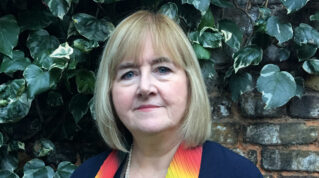Schools want clearer guidance to help them teach about “sensitive and difficult subjects” like sexual orientation and gender reassignment, amid “confusion” about their obligations, Ofsted has warned.
The schools watchdog today released research commentary on teaching about sex, sexual orientation and gender reassignment. Ofsted said there was “a significant lack of research” into how schools address such issues.
The watchdog visited 24 state schools deemed by inspectors and other bodies to be “the most successful at promoting respect across the protected characteristics of sex, sexual orientation and gender reassignment”. The purpose of the research was to identify “good practice” in the teaching of more contentious issues.
Chris Jones, Ofsted’s director of corporate strategy, said the “overwhelming majority” of schools visited wanted “much more specific guidance about sexual orientations and gender reassignment, both for schools and for parents”.
While some staff welcomed the freedom they have under current relationships and sex education guidance, there was “a lot of confusion around schools’ teaching obligations”, Jones said.
This confusion stemmed from a lack of a detailed central curriculum, “grey areas” including the awareness that primary schools can opt not to teach LGBT issues if they are deemed not to be age-appropriate, and “perceived contradictions in the information published by the DfE”.
Leaders also said guidance was needed on what should be taught to pupils at different ages.
Ofsted found that guidance “identifies a minimum requirement, but does not contemplate any ceiling on what can be taught at what age, so there can be pressure to go further, potentially causing conflict with some parents”.
‘Insufficient knowledge’ impacting pupils’ mental health
Group discussions were held with staff and pupils, with pupils at the 14 secondary schools in the study also completing questionnaires.
Jones said some pupils expressed concern that as a result of “not learning enough at school”, they would “struggle with accepting someone with a different sexual orientation or someone who is trans”. Pupils also feared they “would not know how to help someone who came out to feel comfortable in a friendship group”, he warned.
The study also found that some pupils who struggled with finding or accepting their identity, or who were not accepted by other pupils, had found that “insufficient knowledge had contributed to their low well-being and mental ill-health”.
In schools which successfully promoted protected characteristics, teaching about these issues was planned and integrated across the curriculum and across multiple subjects such as PSHE, RE, English, history and science.
However, where pupils were not taught these issues in school “they frequently resorted to learning from social media”.
Tackle gender stereotypes to reduce bullying
Staff included in the study said they saw breaking entrenched stereotypes as a way of “broadening horizons”.
Jones said schools’ work on sex and gender stereotypes may “contribute to reducing homophobic, biphobic and transphobic bullying if bullying originates from stereotypical notions of boys and girls”.
Because research shows children become aware of gender stereotypes from a “very young age”, Jones said it was “positive that some schools began challenging gender stereotypes early”.
The study also found some schools had felt it was appropriate to introduce the concepts of different family types from the same early age.
“For example, in a primary school farm, children sometimes had Mr and Mrs Farmer, but also Mr and Mr Farmer or Mrs and Mrs Farmer.”
Communicate with parents to avoid misunderstandings
Ofsted found that while many parents were happy to support schools’ curriculum choices, others were not.
When home and school are not aligned on values, pupils can “grapple with mixed messages”, resulting in confusion and potential upset.
The research found that where parents expressed dissatisfaction that their child was being taught about LGBT matters, staff talking to parents about exactly what is taught helped “dispel misconceptions”.
However, Jones admitted this may not have solved the “fundamental disagreement”.
He also warned that “misinformation can spread quickly” on social media, but that some schools pre-empted misunderstandings by pro-actively communicating with parents, including by providing information in booklets, sharing the curriculum online or promoting workshops for parents.







Schools want the Dept for Education to come off the fence. In an ideal world DfE would (1) define “gender” so that it becomes clear that a belief in “gender” as “a state of mind separate from the body” is a pathological belief (like the anorexic’s belief that her body is “too fat”) and (2) ban all teaching about “gender” because it is an ideology and (3) stick to good, old-fashioned sex in PHSE. Unfortunately we could end up throwing out SO as well as GI.